commentary Commentary
Commentary: This new Ministry of Sustainability and Environment looks pretty promising
The rebranding of the Ministry is timely because it acknowledges the new challenges of this generation, says Energy Studies Institute’s Melissa Low.
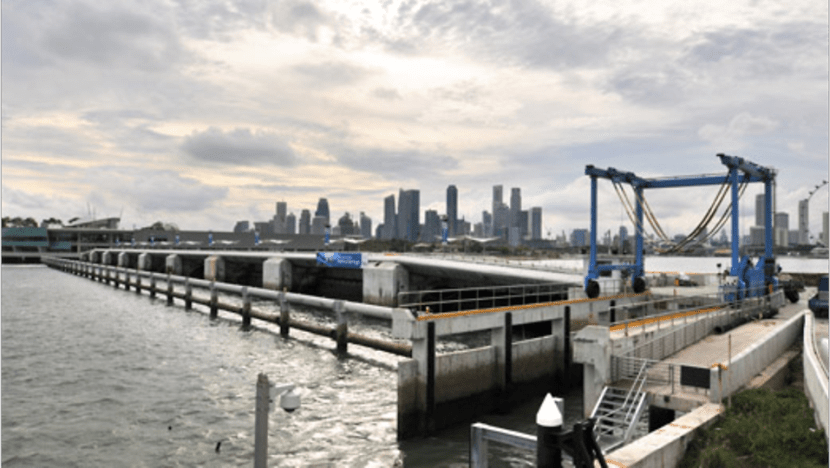
File photo of the Marina Barrage. (Photo: PUB)
SINGAPORE: On Saturday (Jul 25), Prime Minister Lee Hsien Loong announced a new Cabinet which included a reshuffle of portfolios for fourth-generation (4G) leaders, six promotions and three retirements.
Former Minister of Culture, Community and Youth Grace Fu will move to the Ministry of the Environment and Water Resources, which has now been renamed the Ministry of Sustainability and the Environment (MSE).
Explaining the rationale behind the ministry’s new name, PM Lee noted “sustainability has become an increasingly important part of our national agenda”, which now includes climate change defence and managing the island’s carbon footprint.
COVID-19 has also shown Singaporeans how fraught food security and safety is, highlighting the importance of the work of sustainability and climate adaptation.
READ: Commentary: How COVID-19 shaped this Singapore Cabinet line-up
READ: Commentary: From farmers to supermarket clerks, a new kind of essential worker has emerged
THE EVOLUTION IN THE ENVIRONMENT MINISTRY’S FOCUS
The rebranding of the environment ministry is timely because it acknowledges the new challenges of this generation.
The focus of the Ministry has similarly shifted over the decades in keeping up with Singapore’s evolving environmental priorities, with changes in its designation reflective of such changes.
MSE began in 1972 as the Ministry of Environment, which took on pollution control, sewage management and environmental health protection.
With the establishment of NEWater as a key strategic water source, the ministry was aptly renamed in September 2004 the Ministry of the Environment and Water Resources (MEWR).
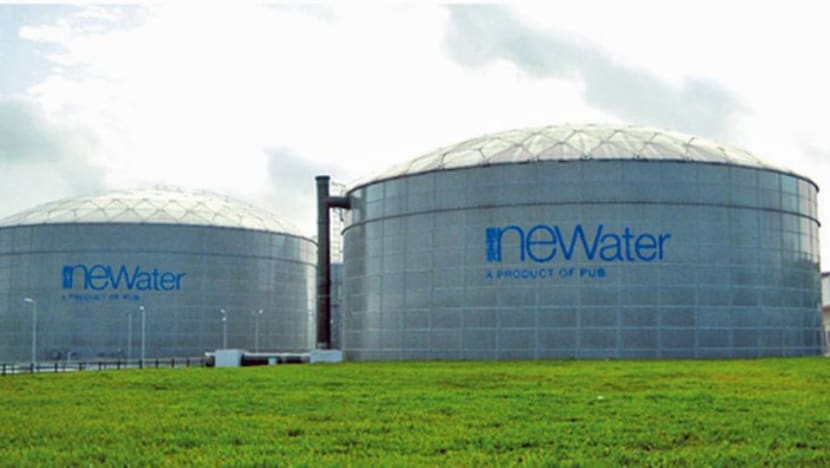
Singapore now faces greater pressure on water and energy resources as global population and demand increases. Climate change is a long-term and high-priority issue that has not diminished, COVID-19 or otherwise.
MSE will be committed to providing Singaporeans with a clean and sustainable environment, and resilient supplies of safe food and water. It will continue to work through its three statutory boards – the National Environment Agency (NEA), national water agency Public Utilities Board (PUB) and the Singapore Food Agency (SFA).
Minister Grace Fu is the 12th minister to take over this portfolio, and is the first female minister in Singapore to be in charge of the sustainability and environment portfolio.
She joins Senior Minister of State Dr Amy Khor, who has been with MEWR since 2006, first as Senior Parliamentary Secretary, then as a Minister of State before her current role as Senior Minister of State.
READ: New office holders will bring fresh ideas and perspectives, says PM Lee at swearing-in of new Cabinet
But Minister Fu is not new to the environment portfolio. In 2011, she was appointed Senior Minister of State in the Ministry of the Environment and Water Resources and in August 2012, assumed the role of Second Minister. She was put in charge of the Municipal Services Office in 2014.
In a Facebook post following the Cabinet reshuffle, Minister Fu noted that the renaming of the Ministry is “meaningful and significant, as sustainability has always been a part of Singapore’s DNA”.
She cited the vision of Singapore’s pioneer generation of leaders who laid the “solid foundation for the green and liveable city that we enjoy today”.
READ: Greener and cleaner: Reimagining our cities in the wake of COVID-19
GROWING COMPLEXITY OF ENVIRONMENTAL ISSUES
The Ministry’s renaming suggests environmental issues have become more complex, requiring greater interdependency with other ministry portfolios.
For example, MSE would have to work with other agencies and research institutions to generate new green jobs and business opportunities for Singapore.
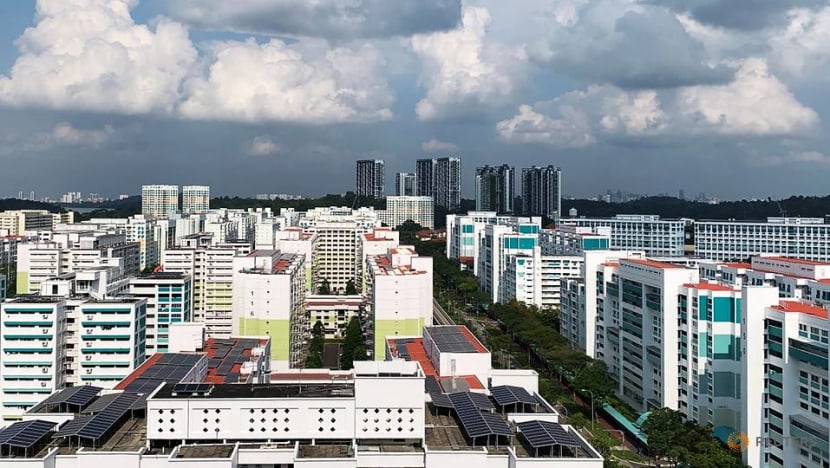
Sustainability already is an important part of Singapore’s national agenda, but even more so as the Government tries to support the diverse needs and growing aspirations of Singaporeans. This will necessitate an evolution of the rules of engagement.
Environment and sustainability are key areas of empowerment and action for individuals, communities and businesses. In recent times, Singapore youth have shown to want to take greater ownership of sharing their perspectives on climate action.
The National Youth Survey 2016 revealed that one in four youth have participated in environmental conservation efforts. This number is likely to have increased in the last few years.
Under Minister Fu’s leadership as Minister for Culture, Community and Youth, the SG Youth Action Plan announced in 2019 laid the foundations as a platform for youth to co-deliberate and co-deliver policies together, particularly in areas concerning the environment, the future of work and social issues.
A series of Youth Conversations held throughout 2018 highlighted that these specific topics were among the top concerns of Singaporean youths.
In her Facebook post, Minister Fu also thanked outgoing Minister Masagos Zulkifli, who will be heading the Ministry of Social and Family Development, as well as previous Environment Ministers for their contributions.
LISTEN: Talking about the Madrid climate talks, what happened and what’s next?
READ: Commentary: I care about climate change. I don't wish to live in a Waterworld like Kevin Costner
Under Minister Masagos, 2018 was declared Singapore’s Year of Climate Action, generating over 800 climate action events and more than 340,000 pledges of climate action from individuals and organisations.
In 2019, the Ministry pushed for a Year Towards Zero Waste and launched the country’s inaugural Zero Waste Masterplan which maps out Singapore’s key strategies to build a sustainable, resource-efficient and climate-resilient nation.
The landmark Resource Sustainability Act was also passed in Parliament, to encourage resource sustainability and the adoption of the circular economy.
LISTEN: Repairing and recycling to reduce e-waste: A pipe dream in Singapore?
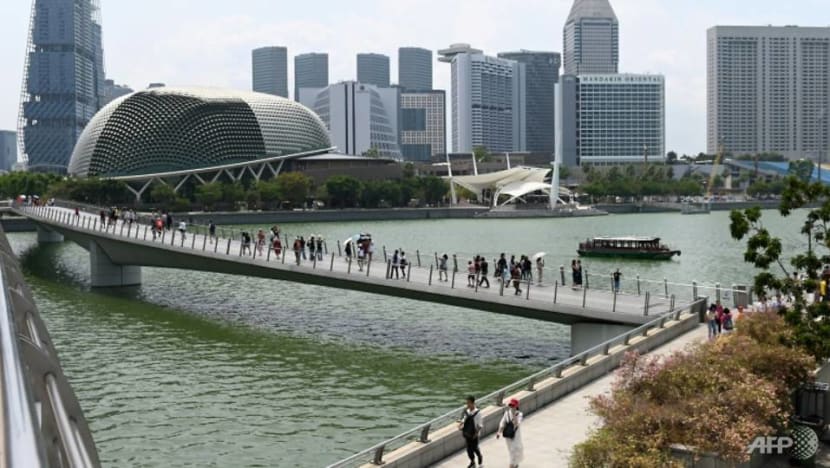
MSE will also continue to play a key role in efforts to protect Singapore against rising sea levels, as announced by PM Lee at the National Day Rally 2019.
Last year, MEWR announced a S$10 million National Sea Level Research Programme to boost the understanding of sea levels around Singapore and develop more robust projections of this threat to Singapore.
The new Climate Science Research Programme Office set up under the Centre for Climate Research Singapore (CCRS) and new Centre for Nature-based Climate Solutions at the National University of Singapore are also part of plans to boost climate science capabilities to allow Singapore to better address climate change and sustainability in the future.
READ: Commentary: China struggles with ‘once-in-a-century’ floods that may be new normal
WORKING WITH OTHER AGENCIES
MSE will also play a key role in ensuring food security. The Singapore Food Agency (SFA) was established last April to put all food issues under one agency, and to ensure a safe and secure supply of food for Singapore.
In late 2019, a multi-agency workgroup was setup to tackle the twin issues of food waste and food insecurity in Singapore. This was co-led by then Minister for Social and Family Development Desmond Lee, whose portfolio will be taken over by Minister Masagos Zulkifli.
The new MSE will benefit from placing more emphasis on collaborative action and partnership. MEWR has already led the way in 2019 by engaging multiple stakeholders on measures to address Singapore’s key waste streams.
Over 250 companies were engaged, and 1,300 respondents had taken part in an online public consultation, followed closely by two focus group discussions co-organised in partnership with two local civil society groups – Zero Waste SG and LepakInSG.
READ: Commentary: Here’s what months of food deliveries and takeaways have taught us
In tackling waste management in Singapore, MEWR was intentional about co-creating and implementing zero-waste initiatives with stakeholders.
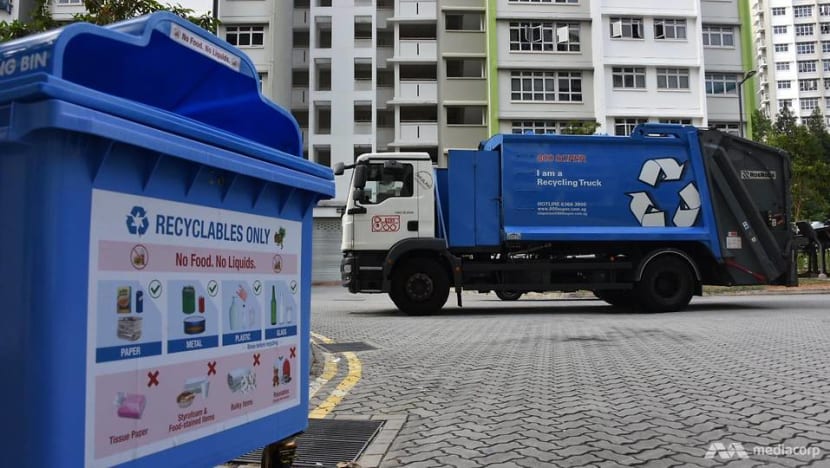
In the coming months, the National Environment Agency (NEA) will be convening a new Citizens’ Workgroup to address the excessive consumption of disposables in Singapore.
This will be held from September 2020 to March 2021, and is in line with the SGTogether movement, where the Government aims to partner Singaporeans in new ways to design and implement ideas, programmes and policies together.
ALL HANDS ON DECK
With the progressively more intricate and demanding challenges from climate change and growing resource constraints, Singapore needs all hands on deck to rally partners and other countries in mitigation efforts while adapting to climate change.
READ: Commentary: Reaching net-zero emissions will be ‘very challenging’. But watch Singapore try anyway
READ: Commentary: Why Singapore’s new 'absolute' climate mitigation targets could be an absolute game changer
Singapore is also seeing a more active citizenry when it comes to environmental policy. Partnership has started to go beyond co-organising events and support for one another and toward building greater trust and transparency.
One example is the MEWR-NYC Youth Circle, where youth leaders are working with MEWR on policy recommendations, such as on reducing food waste.
But improvements can be made to share more information and demonstrate how feedback and engagement have been incorporated into policy and programmes.
After all, Singapore must harness the energy and knowledge of our people, so as to find new ways to solve increasingly complex environmental challenges.
Melissa Low is a Research Fellow at the Energy Studies Institute, National University of Singapore.














